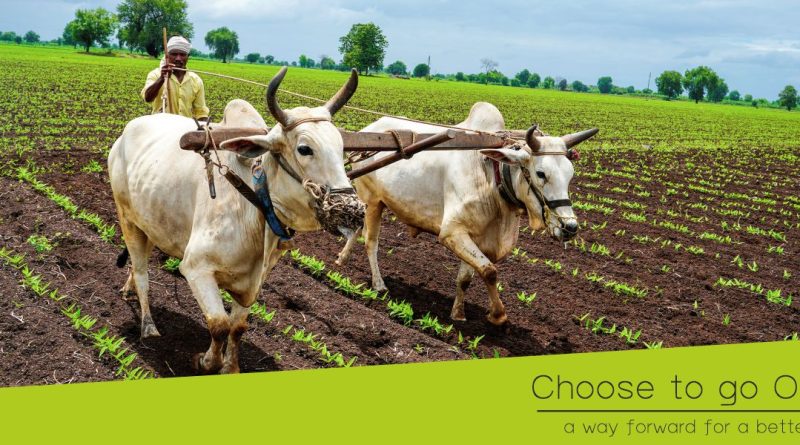Choose Organic – A way forward for a better world!
As climate change affects agricultural production across the world and eco-life principles are looming, we believe it’s time to revisit our food production basics. It is not only CO2 emissions or urbanization alone that disrupt ecological principles; synthetic fertilizers and pesticides also contribute to the loss of ecosystem balances. It is high time to move towards organic agriculture.
Here is fundamental information for the curious one, be they a farmer or a backyard gardener.
Organic agriculture is a method of crop and livestock production that emphasizes the use of natural resources and the promotion of ecological balance. It focuses on the avoidance of synthetic fertilizers, pesticides, genetically modified organisms (GMOs), and growth hormones. Instead, organic farming utilizes techniques such as crop rotation, composting, and biological pest control to maintain soil health and ensure the production of wholesome, high-quality food.
One of the primary benefits of organic farming is its positive impact on the environment. By avoiding the use of synthetic chemicals, organic agriculture helps to preserve and protect soil biodiversity, enhance water quality, and reduce the risk of air and water pollution. This, in turn, promotes the overall health and resilience of ecosystems and contributes to the preservation of biodiversity.
Additionally, organic farming also plays a crucial role in safeguarding human health. The absence of synthetic pesticides and fertilizers means that organic food products are free from potentially harmful residues. Studies have shown that organic foods can have higher levels of certain nutrients, such as vitamin C, iron, magnesium, and phosphorus, compared to conventionally grown counterparts. Furthermore, organic farming can contribute to the mitigation of antibiotic resistance by prohibiting the routine use of antibiotics in livestock production.
Another notable benefit of organic agriculture is its potential to support rural communities and local economies. Organic farming often requires more labor-intensive practices and can provide employment opportunities, particularly in regions where agriculture is a dominant industry. Furthermore, the demand for organic products has been steadily increasing, creating market opportunities for small-scale farmers and encouraging sustainable agricultural practices.
In terms of taste and quality, organic food has been widely regarded for its superior flavor and nutritional value. The absence of synthetic chemicals and the emphasis on natural farming practices contribute to the production of food that is more vibrant and deeply flavorful. Consumers often perceive organic food as being fresher, healthier, and more wholesome, leading to increased satisfaction and preference for organic products.
While organic farming has numerous benefits, it does face certain challenges. One of the main concerns is the lower yield compared to conventional farming methods. Organic farming relies on natural processes, which may result in reduced productivity and increased vulnerability to pests and diseases. However, studies have shown that, under proper management, organic farms can achieve comparable yields to conventional farms, especially in the long term.
In conclusion, organic agriculture offers various benefits, both for the environment and human health. Its focus on sustainable farming practices, preservation of natural resources, and production of high-quality food make it a viable alternative to conventional agriculture. Despite the challenges it faces, organic farming has the potential to contribute to the creation of resilient ecosystems, support local economies, and provide consumers with healthier and more flavorful food choices.
The author and the content provider have been organic agriculturists in India for over a decade.
They can be approached at





